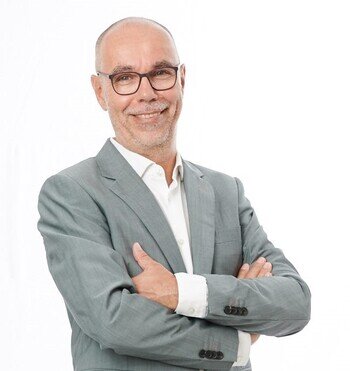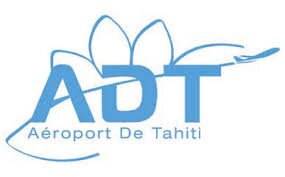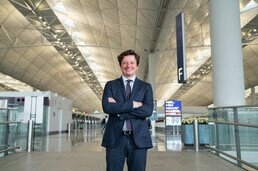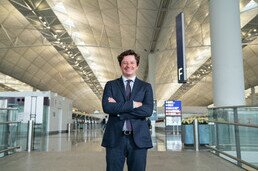Meet the Regional Board: Aeroport de Tahiti
- 13 Jan 2021
In the ‘Meet the Board’ series, we are featuring and introducing the members of the ACI Asia-Pacific Regional Board. We will get to know them better by learning about their leadership style, their thoughts on the next generation of leaders and, unavoidably, the impact of the pandemic.
Presenting Mr.Jean-Michel Ratron, CEO of Aeroport de Tahiti, operating four airports in French Polynesia handling two million passengers a year.
Over the course of his career, Mr. Ratron has experienced many aspects of ACI: from being a World Business Partner to ACI Europe, airport and Regional Board member of ACI Africa and ACI-ICAO AMPAP graduate. He joined the ACI Asia-Pacific Regional Board in June 2020.

Jean-Michel Ratron, CEO of Aeroport de Tahiti and ACI Asia-Pacific Regional Board Director
How did you start your career in aviation?
The very beginning of my aviation career dates many years back. During my studies, I had the good fortune to do a summer internship as a long-haul flight attendant with Air France, the French flag carrier. At that time, aviation was for me an incredible opportunity to discover several continents almost at the same time.
One day someone said to me: "When you enter the world of aviation, you stay there forever.” This was not totally accurate, because after my studies I worked in other sectors of activity, but indeed, almost 25 years after this first experience, I returned to the world of aviation at Roissy-Charles De Gaulle in France. For eight years, I ran a company responsible for transporting passengers and crews by bus between terminals and planes. This shows that you can get into aviation through a diversity of routes!
For almost ten years now, I have been managing airports for the French group Egis Airport Operation. After having managed the international airport of Libreville in Gabon (Central Africa), then the concession of the international airports of Congo (Brazzaville and Pointe-Noire), I now run the airports of Tahiti, Bora-Bora, Raiatea and Rangiroa in French Polynesia.
What have you had to do differently in terms of leading your team during the pandemic?
If leading a team means developing medium/ long-term plans and implementing the means to achieve the objectives of those plans, then leading during a pandemic such as COVID-19 can seem very destabilizing. But during the last few years, the crises we have gone through in this sector have taught us that the improbable will happen more certainly than the long-term plan that we have worked out. It seems to me that in the airport industry, the teams are used to these unforeseen events, and have learned to quickly analyze a situation in order to adapt to it.
My job, above all, is to give a perspective to emergency action (to avoid thinking only about today) and to think, with my team, about the organization of tomorrow because it will have to take into account the consequences of the crisis. My job is also to monitor the day-to-day finances.
We created an "activity exchange market", with the aim of returning paid activities to people who no longer had any.

Has there been a silver lining arising from this pandemic crisis and if so, what?
Tahiti airport operational teams have not been affected in the same way by the consequences of traffic reduction. For instance, the Aircraft Rescue and Firefighting (ARFF) teams continued to be mobilized under almost normal conditions, while the business lounge’s hostesses had virtually no work. To avoid the injustices arising from this situation, with some staff that continues to be paid normally while others are in partial activity, we created an "activity exchange market", with the aim of returning paid activities to people who no longer had any. For example, instead of buying anti-COVID masks outside, we had them made by airport staff. We also gave these staff tasks that we used to subcontract. This new solidarity in managing staff activities is a very positive element that has taken shape with the COVID-19.
Apart from COVID-19, what are the most pressing issues facing your airport?
It is not the COVID-19 itself that arises the most difficulties at the airport, but the consequences of the decisions taken to prevent COVID-19 from developing. Tahiti is essentially a tourist and affinity destination. The decisions that most affect the airport are those taken halfway around the world, in Europe, the USA and Asia, that is, in our source markets. During the first wave of the pandemic, we had no deaths and very few cases in Polynesia, but we have been affected by the border closure decisions of countries that were experiencing the first wave.







